Pentagon Study: Flu Shot Raises Risk of Coronavirus by 36% (and Other Supporting Studies)
By Robert F. Kennedy, Jr., Chairman, Children’s Health Defense
On March 12th, 2020, Anderson Cooper and Dr. Sanjay Gupta held a global town hall on “Corona Facts and Fears.” During the discussion, Anderson said to the viewing audience, “And, again, if you are concerned about coronavirus, and you haven’t gotten a flu shot…you should get a flu shot.”
Setting safety and efficacy of influenza vaccination aside, is Anderson’s claim that the flu shot will help people fight COVID-19 remotely true? The short answer is no.
In fact, the results of many peer-reviewed, published studies prove that Anderson’s recommendation may have been the worst advice he could have given the public.
In searching the literature, the only study we have been able to find assessing flu shots and coronavirus is a 2020 US Pentagon study that found that the flu shot INCREASES the risks from coronavirus by 36%. “Receiving influenza vaccination may increase the risk of other respiratory viruses, a phenomenon known as “virus interference…’vaccine derived’ virus interference was significantly associated with coronavirus…” Here are the findings:
2020 Pentagon study: Flu vaccines increase risk of coronavirus by 36%
Examining non-influenza viruses specifically, the odds of coronavirus in vaccinated individuals were significantly higher when compared to unvaccinated individuals with an odds ratio (association between an exposure and an outcome) of 1.36. In other words, the vaccinated were 36% more likely to get coronavirus.

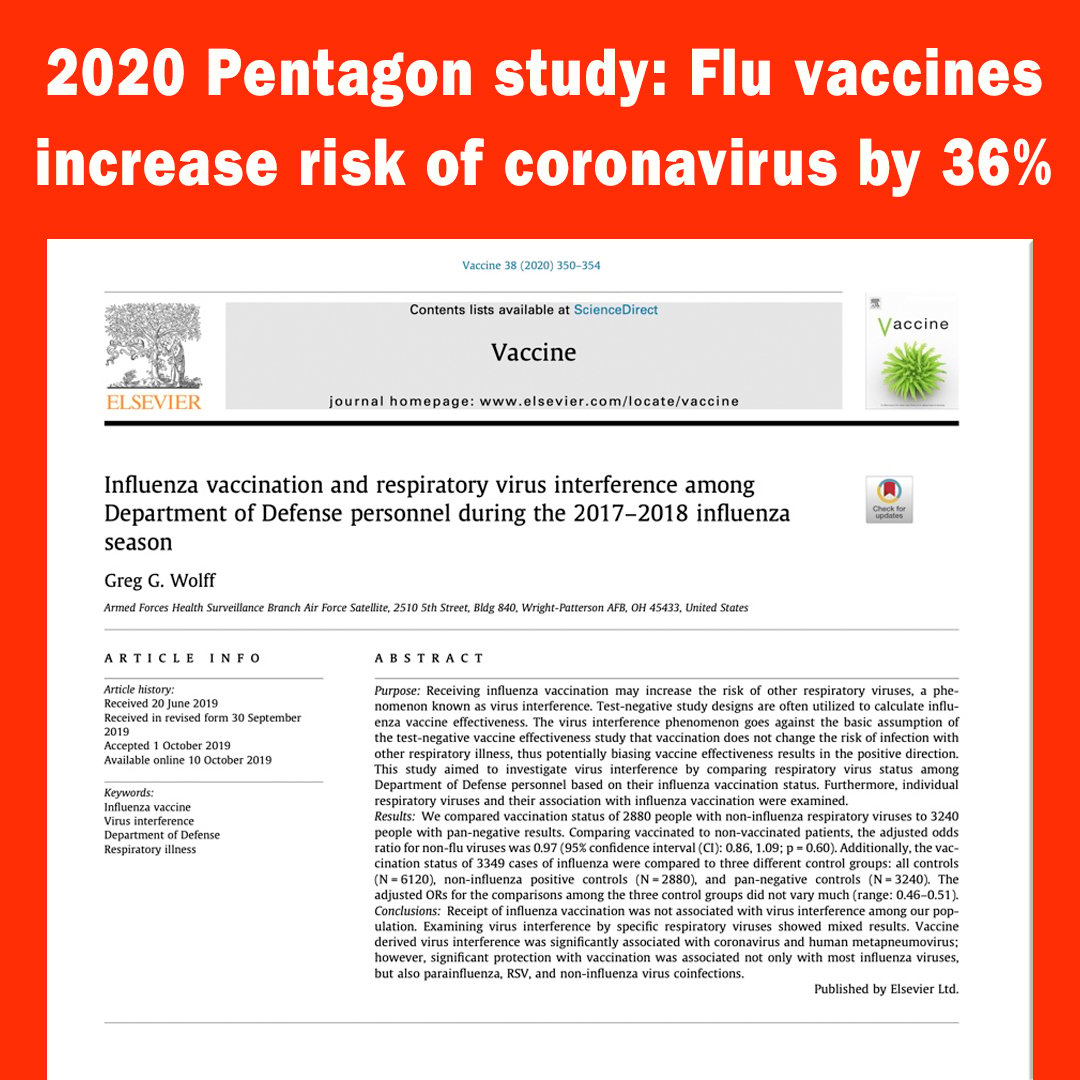
Many other studies suggest the increased risk of viral respiratory infections from the flu shot:
2018 CDC Study: Flu shots increase risk of non-flu acute respiratory illnesses (ARI) in children.
This CDC supported study concluded an increased risk of acute respiratory illness (ARI) among children <18 years caused by non-influenza respiratory pathogens post-influenza vaccination compared to unvaccinated children during the same period.

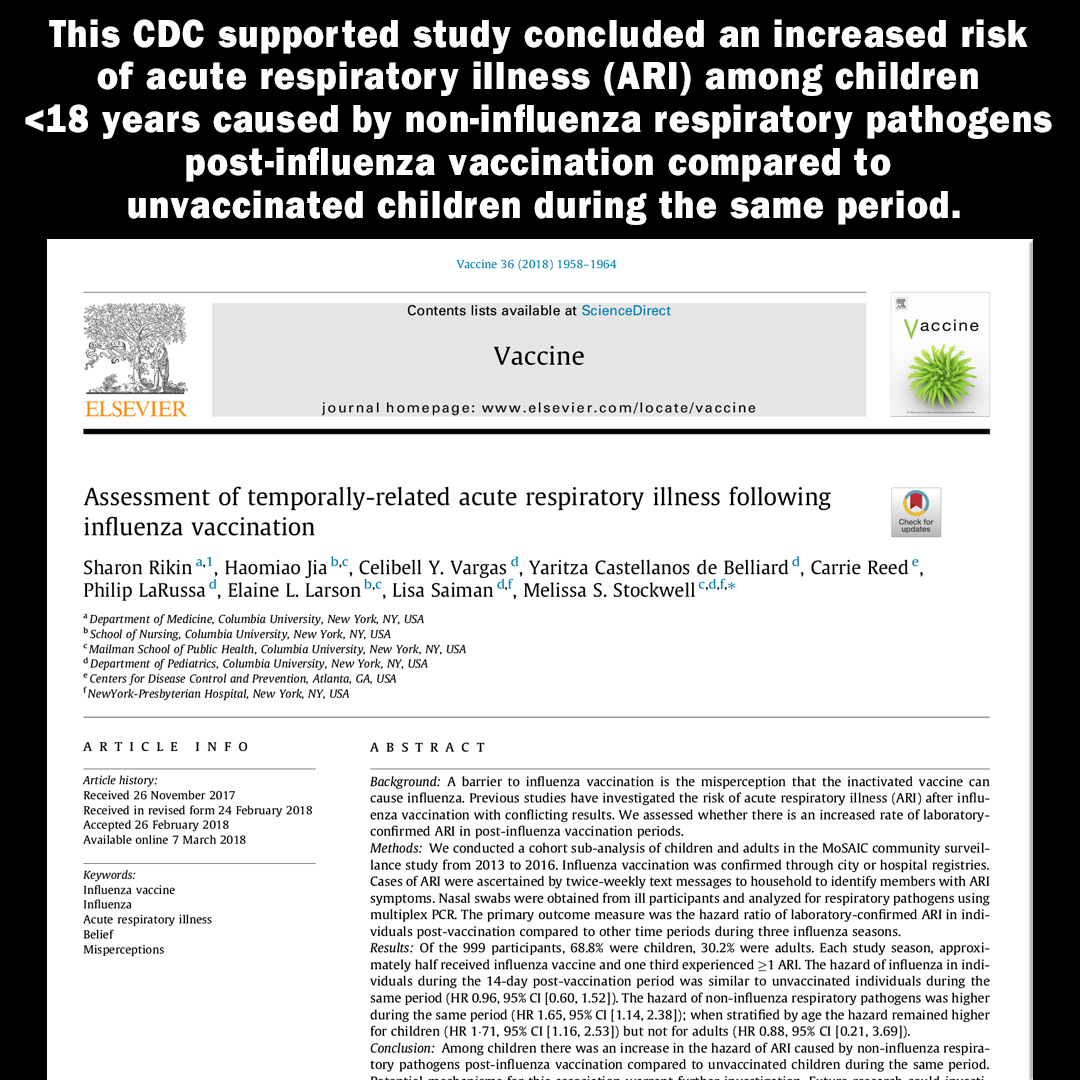
2011 Australian Study: Flu shot doubled risk of non-influenza viral infections and increased flu risk by 73%.
A prospective case-control study in healthy young Australian children found that seasonal flu shots doubled their risk of illness from non-influenza virus infections. Overall, the vaccine increased the risk of virus-associated acute respiratory illness, including influenza, by 73%.
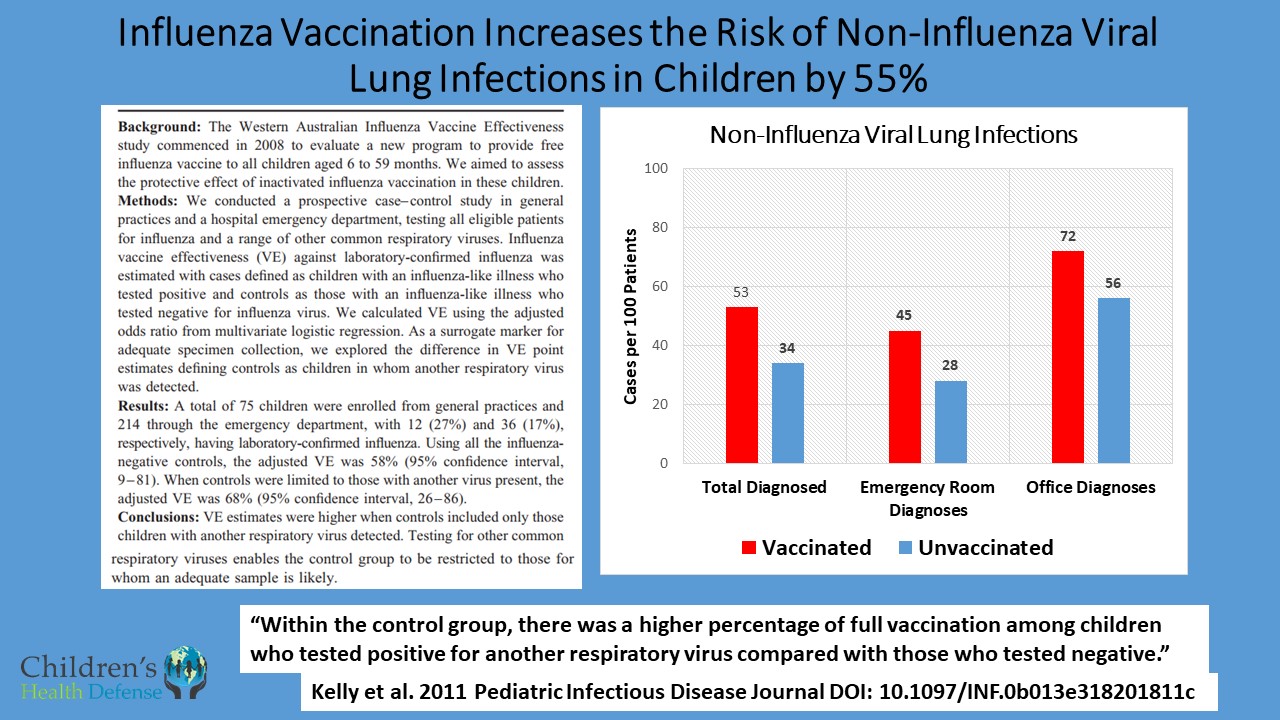
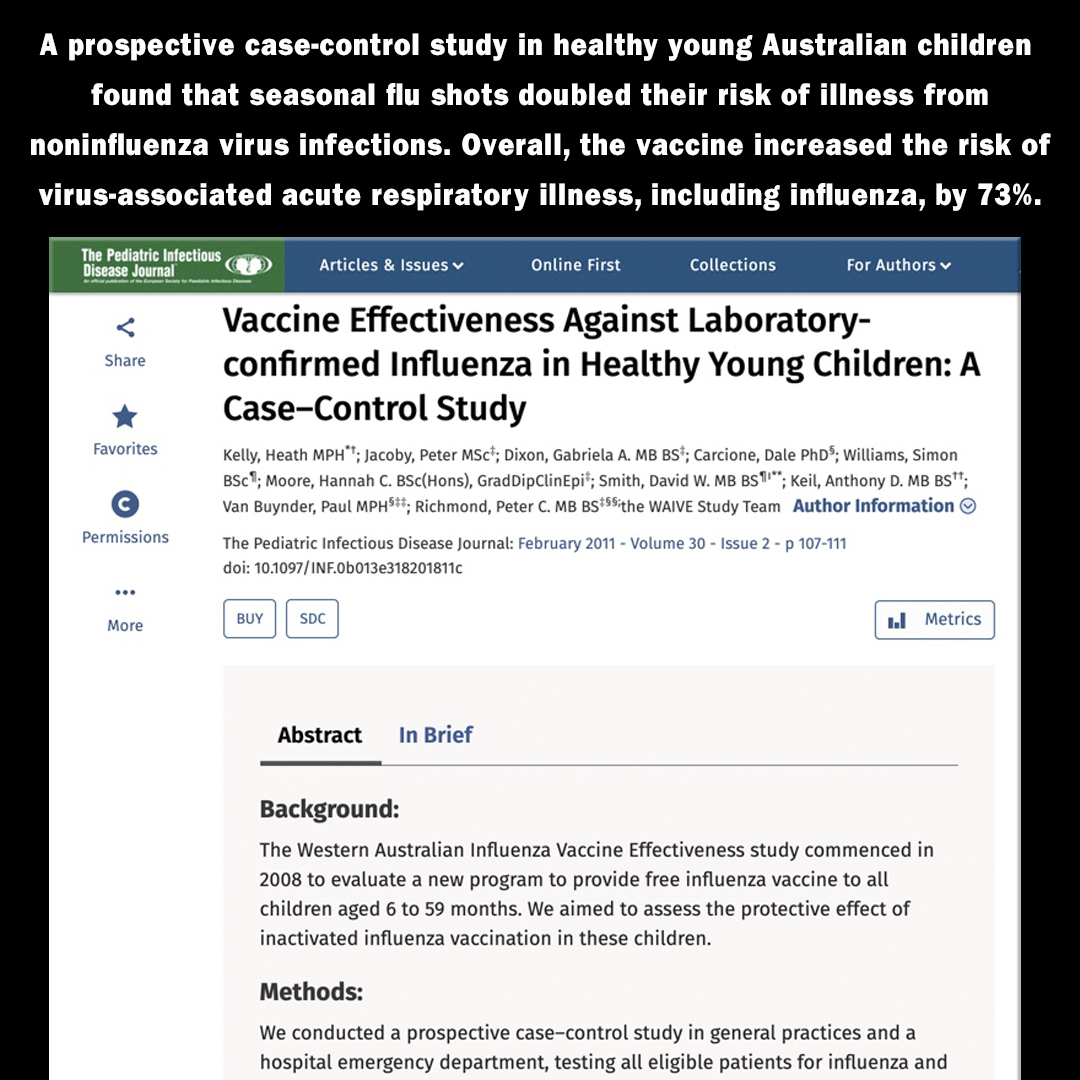
2012 Hong Kong Study: Flu shots increased the risk of non-flu respiratory infections 4.4 times and tripled flu infections.
A randomized placebo-controlled trial in Hong Kong children found that flu shots increased the risk of non-influenza viral ARIs fivefold (OR 4.91,CI 1.04—8.14) and, including influenza, tripled the overall viral ARI risk (OR 3.17, CI 1.04—9.83).
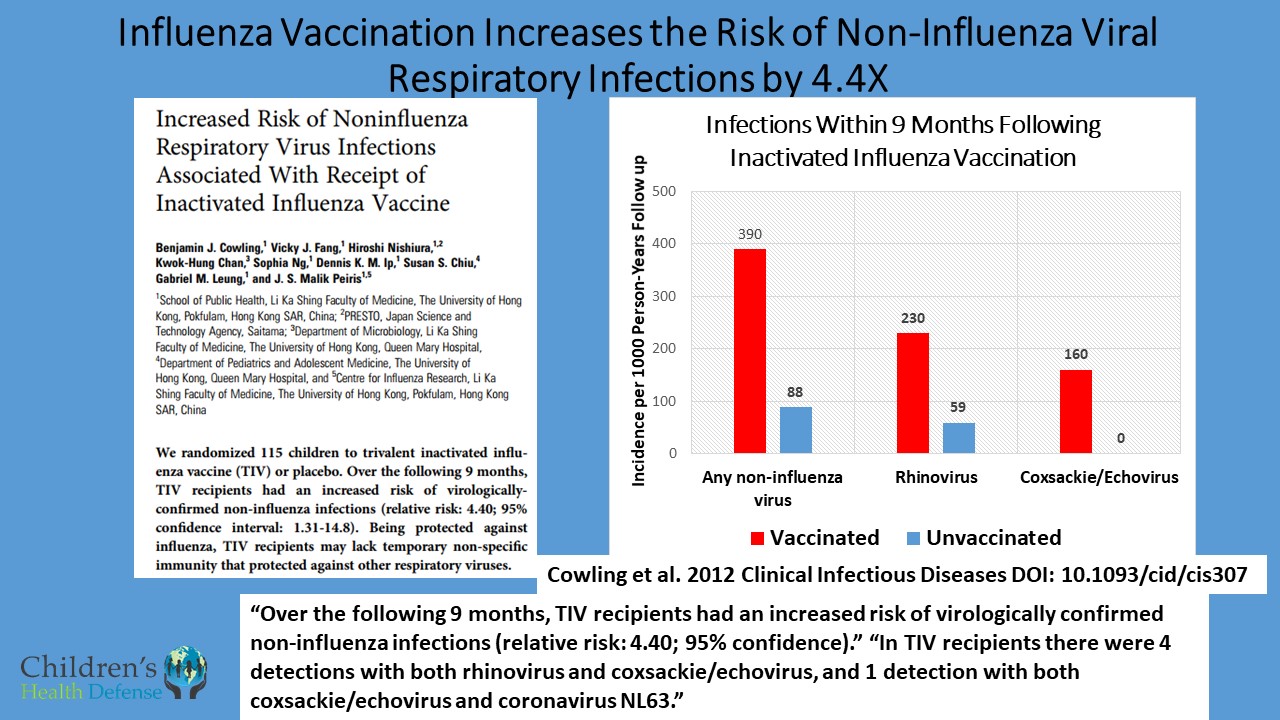
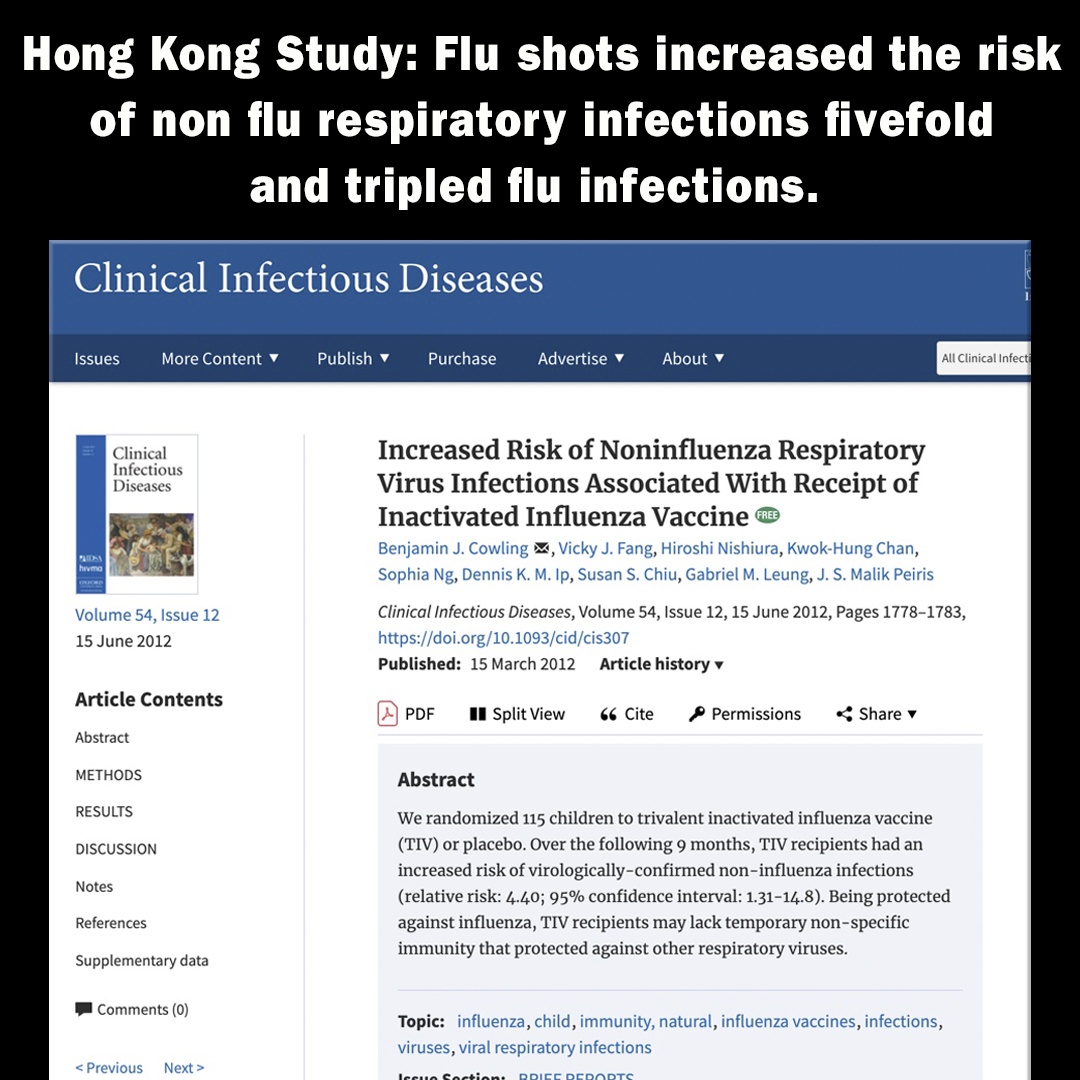
2017 Study: Vaccinated children are 5.9 more likely to suffer pneumonia and 30.1 times more likely to have been diagnosed with Allergic Rhinitis than unvaccinated children.
Vaccinated children were 30.1 times more likely to have been diagnosed with Allergic Rhinitis and 5.9 times more likely to have been diagnosed with pneumonia than unvaccinated children.
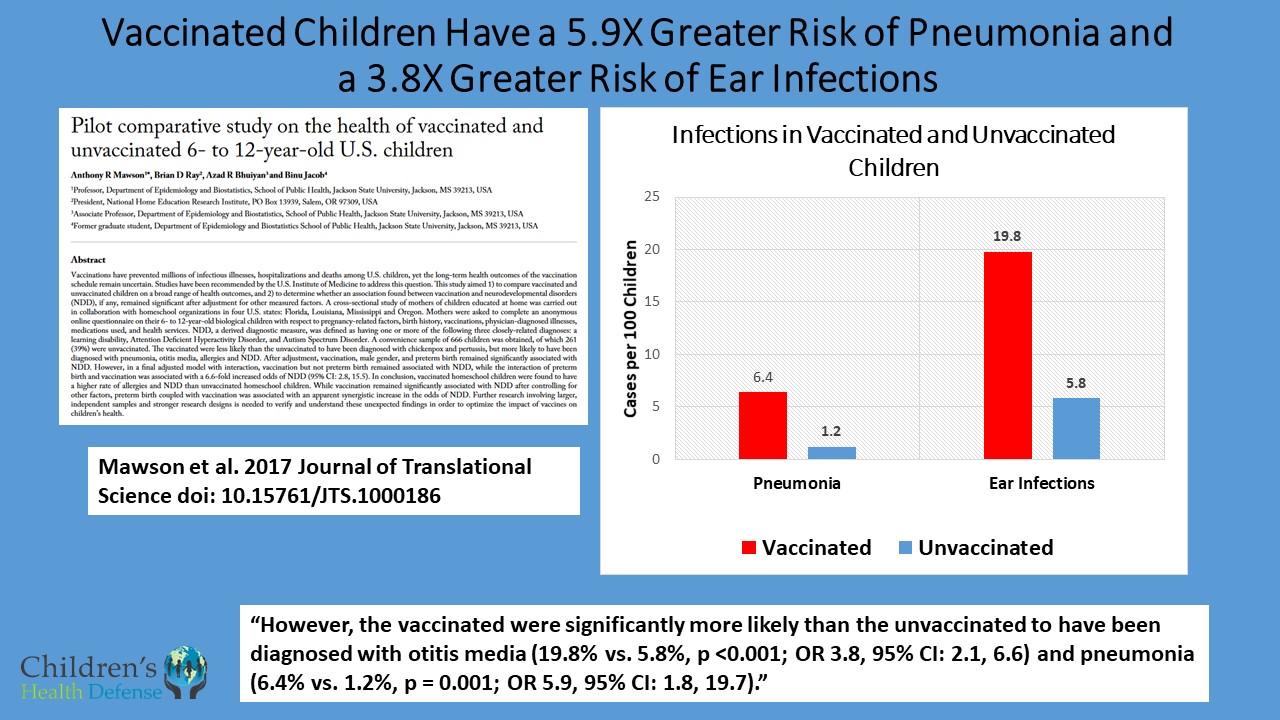
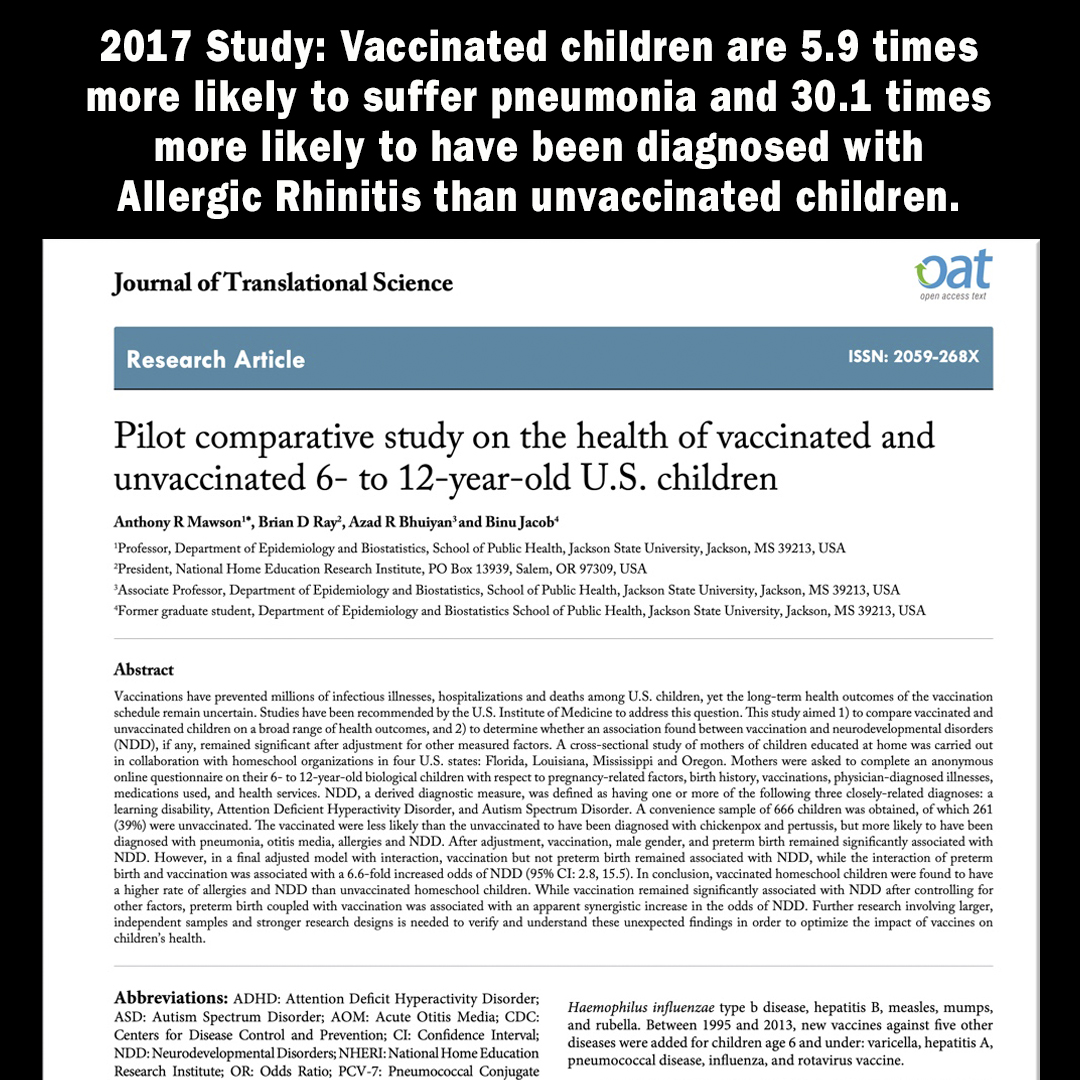
2014 Study: Influenza-vaccinated children were 1.6 times more likely than unvaccinated children to have a non-influenza “Influenza-like-illness” (ILI).
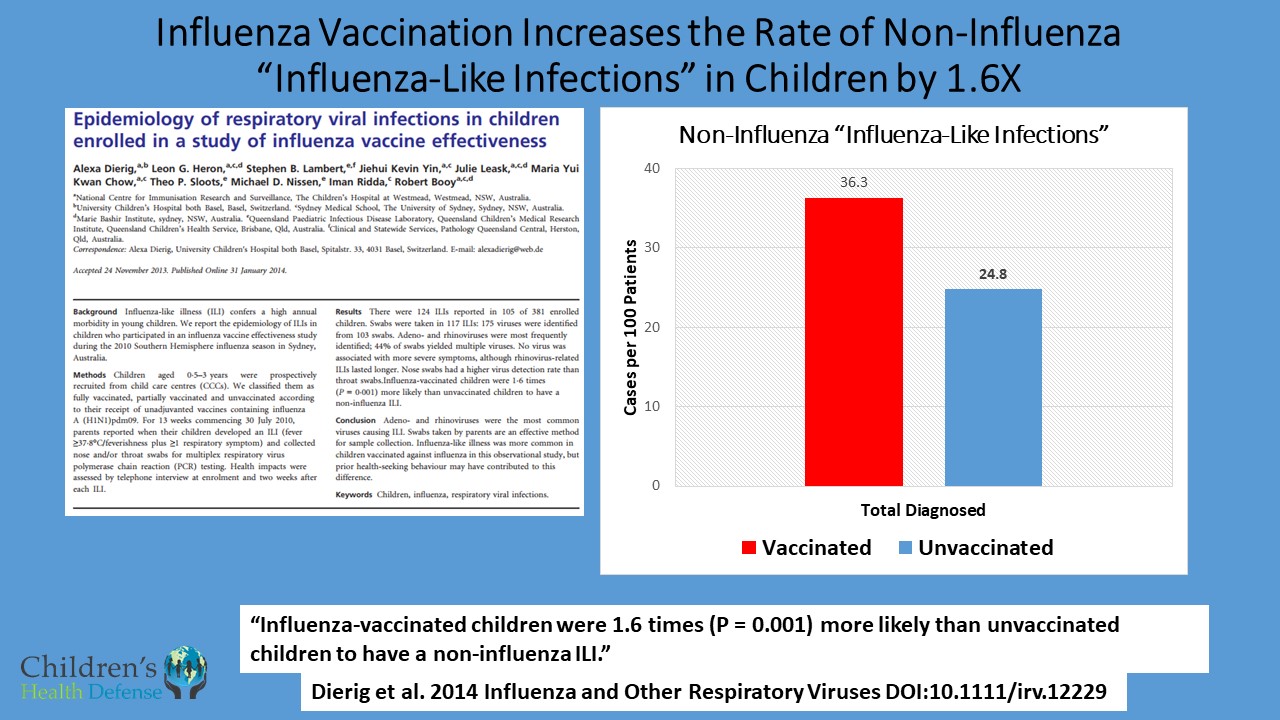
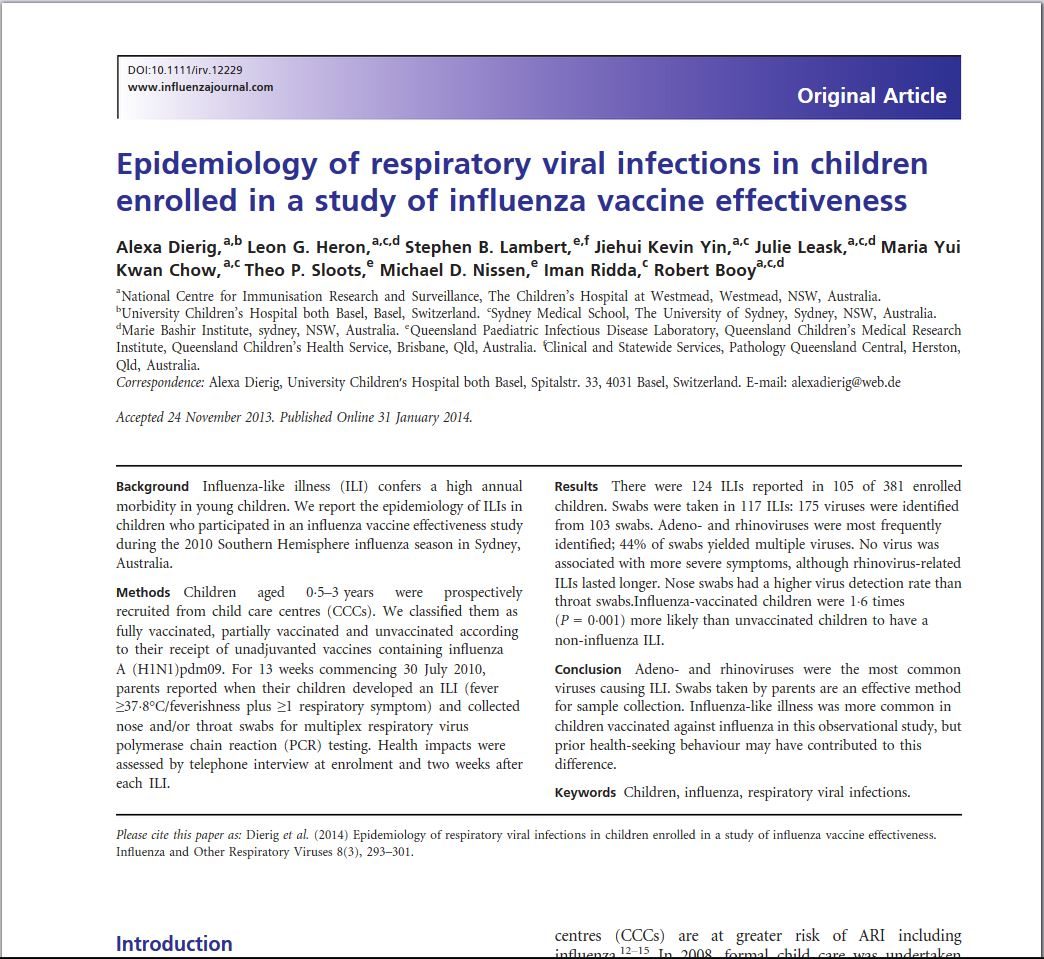
Even more published science
The well-respected Cochrane Collaboration’s comprehensive 2010 meta-analysis of published influenza vaccine studies found that the influenza vaccination has “no effect” on hospitalization, and that there is “no evidence that vaccines prevent viral transmission or complications.” The Cochrane Researchers concluded that the scientific evidence “seem[s] to discourage the utilization of vaccination against influenza in healthy adults as a routine public health measure.”
In their meta-analysis, the Cochrane researchers accused the CDC of deliberately misrepresenting the science in order to support their universal influenza vaccination recommendation. Nevertheless, CNN and other mainstream media outlets continually broadcast CDC pronouncements as gospel and, ironically, ridicules those of us who actually read the science as “purveyors of ‘vaccine misinformation”.



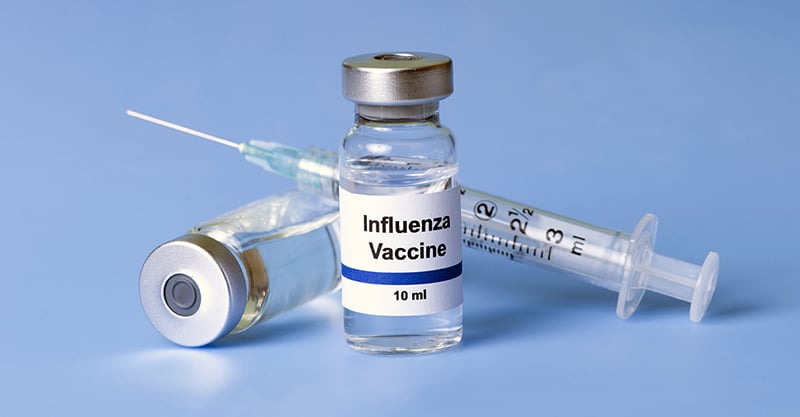
No comments:
Post a Comment
Note: only a member of this blog may post a comment.